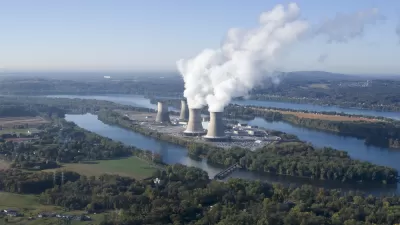With the turnover of leadership in the Senate to Republicans in January, the only Keystone question was whether advocates had enough votes to override a promised presidential veto. Turned out they were unable to overcome the first filibuster of 2015.
Sixty votes were required to overcome a Senate filibuster by opponents of authorizing construction of the controversial pipeline without presidential approval. Opponents had the weather in their favor, plus disenchantment with the cutoff of debate, according to Elana Schor, an energy reporter for POLITICO Pro, focusing on oil and gas.
A pair of 53-39 votes against ending debate on Keystone might have reached the 60-vote threshold they needed, however, had two absent pro-pipeline Democrats voted with the GOP Monday night, and winter storms not prevented some Republicans from reaching Washington.
In fact, the prior vote on Nov. 18, 2014, when Democrats controlled the Senate, was much closer.
On a 59 to 41 roll call, [former Sen. Mary] Landrieu’s [D-La] campaign fell one vote shy of passing legislation meant to force President Obama to approve the nearly 1,700-mile, $7.6 billion project, which would deliver 830,000 barrels of oil a day from western Canada to the American heartland. With just 14 Democrats backing it, Landrieu’s bill fell victim to a filibuster by her own party. All 45 Republicans voted for the measure.
While absenteeism may have lost the vote for new Majority Leader Mitch McConnell (R-Ky.), Democrats have also pushed him "to continue the freewheeling energy debate on the floor that has delved into topics ranging from climate change to eminent domain," writes Schor.
The Keystone bill’s future now may depend on whether the Senate Energy and Natural Resources Committee’s leaders, Chairwoman Lisa Murkowski (R-Alaska) and Sen. Maria Cantwell (D-Wash.), can hammer out an agreement for more amendment votes that satisfies the bill’s Democratic supporters.
As it turns out, a Senate vote may not be needed to force the president's hand on making a decision whether to authorize or reject the pipeline.
On Feb. 2, the Obama administration’s years-long review of a border-crossing permit for the Alberta-to-Texas pipeline enters its next stage as agencies such as EPA and the Interior Department face a deadline for commenting on the State Department’s finding that Keystone is unlikely to have a significant environmental impact.
PoliticusUSA owner Jason Easley adds that "(t)he bill to authorize the construction of the pipeline will eventually pass, but Democrats are sending a message to McConnell and the Republicans that they are going to hold McConnell to his word that the Senate will be run by an open process."
Hat tips to Alex Guillen and Darren Goode of Politico Morning Energy.
FULL STORY: Keystone votes fail in Senate

Planetizen Federal Action Tracker
A weekly monitor of how Trump’s orders and actions are impacting planners and planning in America.

Map: Where Senate Republicans Want to Sell Your Public Lands
For public land advocates, the Senate Republicans’ proposal to sell millions of acres of public land in the West is “the biggest fight of their careers.”

Restaurant Patios Were a Pandemic Win — Why Were They so Hard to Keep?
Social distancing requirements and changes in travel patterns prompted cities to pilot new uses for street and sidewalk space. Then it got complicated.

Platform Pilsner: Vancouver Transit Agency Releases... a Beer?
TransLink will receive a portion of every sale of the four-pack.

Toronto Weighs Cheaper Transit, Parking Hikes for Major Events
Special event rates would take effect during large festivals, sports games and concerts to ‘discourage driving, manage congestion and free up space for transit.”

Berlin to Consider Car-Free Zone Larger Than Manhattan
The area bound by the 22-mile Ringbahn would still allow 12 uses of a private automobile per year per person, and several other exemptions.
Urban Design for Planners 1: Software Tools
This six-course series explores essential urban design concepts using open source software and equips planners with the tools they need to participate fully in the urban design process.
Planning for Universal Design
Learn the tools for implementing Universal Design in planning regulations.
Heyer Gruel & Associates PA
JM Goldson LLC
Custer County Colorado
City of Camden Redevelopment Agency
City of Astoria
Transportation Research & Education Center (TREC) at Portland State University
Camden Redevelopment Agency
City of Claremont
Municipality of Princeton (NJ)



























